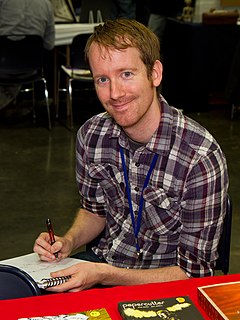A Quote by Mike McCue
Articles themselves are condensed to narrow columns of text across 5, 6, 7 pages, and ads that are really distracting for the reader, so it's not a pleasant experience to 'curl up' with a good website.
Related Quotes
We must be forewarned that only rarely does a text easily lend itself to the reader's curiosity... the reading of a text is a transaction between the reader and the text, which mediates the encounter between the reader and writer. It is a composition between the reader and the writer in which the reader "rewrites" the text making a determined effort not to betray the author's spirit.
The meaning of a work is not what the author had in mind at some point, nor is it simply a property of the text or the experience of a reader. Meaning is an inescapable notion because it is not something simple or simply determined. It is simultaneously an experience of a subject and a property of a text. It is both what we understand and what in the text we try to understand.
And so, when I began to read the proffered pages, I at one moment lost the train of thought in the text and drowned it in my own feelings. In these seconds of absence and self-oblivion, centuries passed with every read but uncomprehended and unabsorbed line, and when, after a few moments, I came to and re-established contact with the text, I knew that the reader who returns from the open seas of his feelings is no longer the same reader who embarked on that sea only a short while ago.
I know "accessibility" is a term that's kind of thrown around wantonly today, especially with talking about visual media. But I think that the strength of comics [is how they] really allow you to transcend those last barriers between a reader absorbing the information of an experience, and a reader being able to project themselves into the [experience of the] people about whom they're reading.
The thing that helps me do a good job is that I don't feel the need to explain everything about the world to my reader. I'm not writing a history text on the Four Corners. I'm telling a story that's set there. The setting belongs in the background for the most part, and it's easy for fantasy authors to forget that. That's one of the unfortunate parts of Tolkien's legacy, in my opinion. Read the first hundred pages of the Fellowship of the Ring and you start to get pissed, "Shut up about the Shire's museums! Isn't the world supposed to be in peril or something?"
So we start with an oversignifying reader. Those texts that appear to reward this reader for this additional investment - text that we find exceptionally suggestive, apposite, or musical - are usually adjudged to be 'poetic'. ... The work of the poet is to contribute a text that will firstly invite such a reading; and secondly reward such a reading.



































